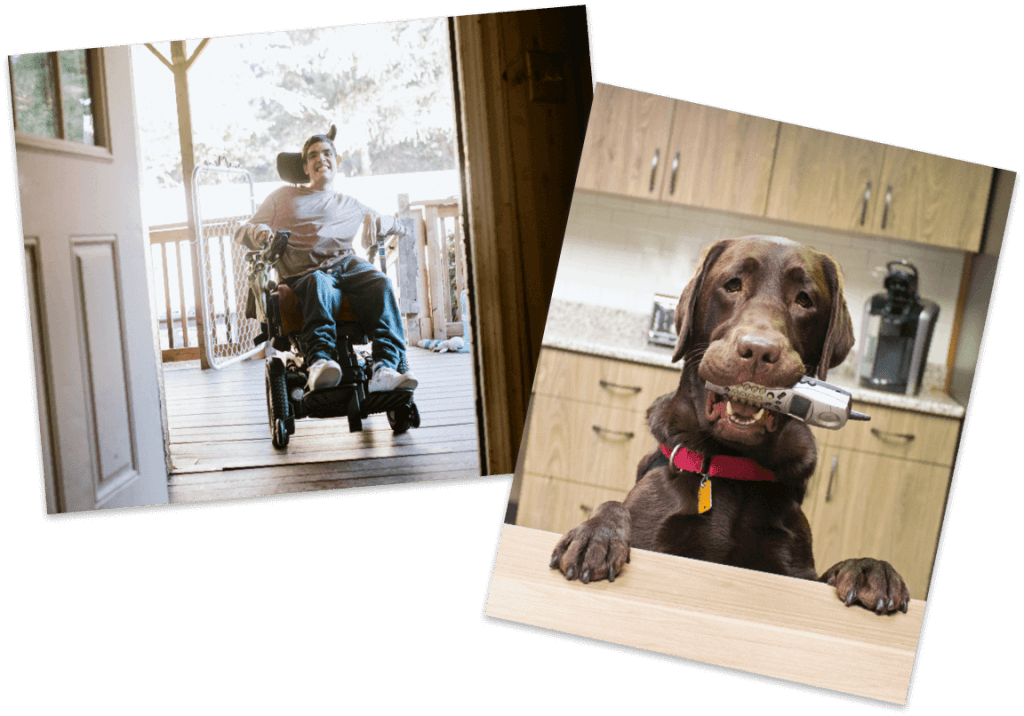Adults with disabilities make up nearly 20% of the American workforce, but they often face greater challenges in finding and maintaining employment. In most cases, this is because they’re not given the opportunity to develop soft and hard job skills that characterize appealing candidates.
However, these social- and work-related attributes are essential to securing employment and maintaining a job in the long run. In this blog, we’ll explore top soft and hard job skills for adults with disabilities and how you can succeed in a competitive job market.
What Are Soft Job Skills?
Also known as interpersonal skills, soft skills are core competencies that define how you work. These transferable skills come in handy regardless of your job and are useful in any professional environment. If you’ve already held employment, chances are you’ve developed a set of soft skills.
Ultimately, soft job skills are just as important as specific job-related competencies. They’re especially crucial if your job requires you to interact with the public. However, the ability to “read” other people and adapt to uncertain situations can be difficult for people with certain disabilities.
Let’s take a look at some of the most valuable soft job skills for adults with disabilities that employers are looking for.
Attention to Detail
While the bigger picture is always important, businesses want employees who pay close attention to the details. You should be able to pick out minute — but crucial — details and synthesize them to draw larger conclusions.
Communication Skills
Good communication skills help you productively engage with your coworkers, superiors, and customers. They also allow you to follow instructions and effectively express your thoughts and feelings to those around you. In short, they’re essential to a positive work environment where everyone feels valued.
Conflict Management Skills
Unfortunately, conflict and disagreements can crop up in any working environment. Potential employers are on the hunt for candidates who know how to calmly navigate and mitigate conflict.

Problem Solving Skills
The ability to solve problems and assess situations from multiple perspectives is another top soft job skill. Problem solving is a key component of critical thinking, strategizing, and taking advantage of potential opportunities.
Professionalism
Approaching your job with a positive, professional attitude impacts how your superiors and coworkers perceive you. Professionalism includes things like showing up for work on time, dressing appropriately, and treating the people around you with respect.
Teamwork Skills
The ability to work as part of a team is crucial to both your individual success and that of your company. Effective teamwork also involves understanding the needs of your coworkers and supporting them for the greater good.
Time Management Skills
Knowing how to manage your time effectively allows you to prioritize your tasks and accomplish them effectively. Effective time management also demonstrates initiative and positions you as a self-starter who doesn’t need to be hand-held.

UDS Can Help You Live A Fuller Life With Our Comprehensive Services:
Planning & Support – Our dedicated planning & support teams help manage the care and services you need.
Personal Care & Independence – We’ve helped people with disabilities live more independently in their own homes since 1965.
Enrichment & Life Skills – Our variety of programs is dedicated to building skills for living well with a disability.
What Are Hard Job Skills?
Unlike soft job skills, hard skills relate specifically to the job you’re hired to perform. In other words, they’re the expertise and knowledge you need to do your job to the best of your ability. A few examples of hard job skills include accounting, carpentry, engineering, and technical writing.
Unlike soft skills, hard job skills can be taught step-by-step through a variety of means. These include:
- College
- Trade school
- Training programs
- Apprenticeships
- Certification programs
- On-the-job training
Jobs for People with Disabilities
While you should pursue any job you’re interested in, some careers are well-suited for particular disabilities. You’ll find a few examples of jobs that might play to your specific strengths below:
Autism Spectrum Disorder
- Actor/actress
- Computer-related jobs
- Engineering
- Healthcare
- Technical writer
Blind/Low Vision
- Career counselor
- Customer service representative
- Insurance agent
- Massage therapist
- Telemarketer

Deaf/Hard of Hearing
- Accountant
- Desktop publisher
- Graphic designer
- Industrial machinery worker
- Web developer
Intellectual Disabilities
- Bank teller
- Cashier/store clerk
- Low-risk security guard
- Photographer
- Warehouse worker
Mental Health Conditions
- Courier/messenger
- Graphic designer
- Receptionist
- Recreation worker
- Teacher
Physical Disabilities
- Actuary
- Emergency dispatcher
- Financial analyst
- IT specialist
- Software developer
Speech Impairments
- Food preparation worker
- Orderly
- Picker/packer
- Truck driver
- Landscaper/groundskeeper
Tips for Finding Jobs for People with Disabilities
Now that you know the top soft and hard job skills for adults with disabilities, you’re ready to pursue employment. As someone with a disability, it’s easy to feel discouraged and disadvantaged during your job search. However, careful self-marketing allows you to turn your disability into a valuable asset. Be confident, and remember that your disability does not define you, personally or professionally.
Start Your Job Search on the Right Foot
Setting yourself up for professional success starts with being informed and understanding your many strengths. Do your research beforehand, and make sure you’re up-to-date on the many resources available to people with disabilities.
Once you’ve identified a particular job or career that you’re interested in, ask yourself the following questions:
- What am I specifically looking for in this job?
- Why is this job interesting and compelling to me?
- How does my disability make me uniquely qualified to perform this job?
- How do others with disabilities handle the challenges of this job?
Once you’ve answered these questions, you’re ready to start applying. Connect what makes you perfect for the job to your hard and soft skills, and emphasize that in your resume, cover letter, and interviews.